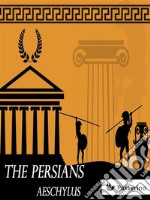<b>Agamemnon</b> is one of three Greek tragedies written by <b>Aeschylus</b> in 450 B.C. collectively known as <b>The Oresteia</b>. <br /><br />In Greek mythology, <b>Agamemnon</b> was a king of Mycenae, the son, or grandson, of King Atreus and Queen Aerope, the brother of Menelaus, the husband of Clytemnestra and the father of Iphigenia, Electra or Laodike, Orestes and Chrysothemis. Legends make him the king of Mycenae or Argos, thought to be different names for the same area. When Menelaus's wife, Helen, was taken to Troy by Paris, Agamemnon commanded the united Greek armed forces in the ensuing Trojan War. <br /><br /><b>Aeschylus</b> (c. 525/524 – c. 456/455 BC) was an ancient Greek author of Greek tragedy, and is often described as the father of tragedy. Academics' knowledge of the genre begins with his work, and understanding of earlier Greek tragedy is largely based on inferences made from reading his surviving plays. According to Aristotle, he expanded the number of characters in the theatre and allowed conflict among them. Before this, characters interacted only with the chorus.<br /><br />Translated by <b>Gilbert Murray</b>.<br />






